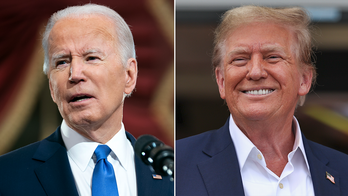ABC News anchor George Stephanopoulos argues that airing live television interviews with former President Donald Trump is irresponsible, citing Trump's tendency to distort the truth and make false statements. Stephanopoulos believes that networks must take steps to ensure that Trump's rhetoric is not given unfiltered access to the public.

## ABC News Anchor Claims Live Trump Interviews Are 'Journalistic Malpractice'

ABC News anchor George Stephanopoulos has sparked controversy by asserting that airing live television interviews with former President Donald Trump is "journalistic malpractice." In a recent podcast interview, Stephanopoulos argued that networks and journalists have a responsibility to prevent Trump from spreading misinformation and eroding public trust.
During the interview, Stephanopoulos explained that Trump's lack of shame allows him to make baseless claims without consequence. He noted that Trump's habit of changing the subject and refusing to accept factual corrections makes him particularly difficult to engage with in a meaningful way.

Stephanopoulos's comments come in response to the upcoming presidential debates, which he believes present a significant challenge for moderators. He suggested that debates should employ techniques such as cutting Trump's microphone at certain points to limit his ability to disrupt the proceedings and avoid answering questions directly.
Stephanopoulos is not alone in his concerns about the potential damage of live Trump interviews. MSNBC anchor Rachel Maddow previously declined to air Trump's Iowa primary victory speech, citing the risk of broadcasting untrue information.
However, other networks have taken a different approach. CNN, which will host the first presidential debate, has not indicated whether it will employ similar measures to control Trump's behavior.
Stephanopoulos's comments have drawn criticism from Trump supporters, who accuse him of bias and censorship. However, Stephanopoulos maintains that his stance is based on a commitment to journalistic integrity and the importance of truth-telling in public discourse.
Stephanopoulos has also faced legal challenges over his comments about Trump. In April, Trump filed a defamation lawsuit against Stephanopoulos for stating that he was "found liable for rape" during an interview with Rep. Nancy Mace (R-S.C.). A federal jury subsequently found Trump liable for sexual abuse and defamation in a separate civil trial brought by advice columnist E. Jean Carroll.
Despite the lawsuit, Stephanopoulos has remained defiant in his belief that it is the media's responsibility to hold powerful figures accountable and to prevent the spread of false information. He has vowed not to be "cowed out of doing my job because of a threat."
The debate over the handling of live Trump interviews is likely to continue as the presidential election approaches. Networks and moderators will face the difficult task of balancing freedom of speech with the need to ensure accurate and responsible reporting.










